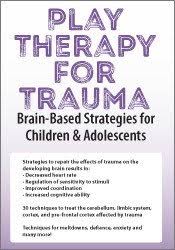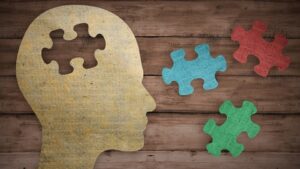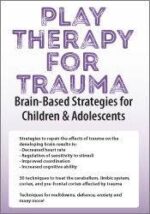Techniques to improve executive function for positive choices: After body is regulated and the whole brain is online (targets the pre-frontal cortex)
 Amy Flaherty – Play Therapy for Trauma
Overview of the Effect of Trauma on the Brain
Age-appropriate play
Environmental vs physical
Long-lasting effects: ACES score
Protective factors with trauma
Importance of attachment research
Five distinct symptoms of trauma within play therapy
Principles of Interpersonal Neurobiology in Play Therapy
The Domains of Integration
The divided brain and why it matters
How play therapy is able to regulate and allow the person to move up and down the brain system as needed
Case examples to demonstrate lack of integration
REPAIRING THE BRAIN THROUGH PLAY TECHNIQUES – OVER 30 TECHNIQUES
Techniques for dysregulation, rigidity, regression, trauma loops (targets cerebellum)
Rhythm games and songs
Attachment activities
Touch in play – when appropriate, best practices
Techniques for emotional identification (targets the limbic system)
Color my heart activity
Name that feeling
Angry balloon game
Angry volcano experiment
Butterflies in my tummy
What’s different in the sand tray
Techniques for coping skills to address rigidity, trauma loops, and harmful behaviors (targets the cortex)
Mad Libs assertiveness skill game
I can calm down hand game
Breathing games
Calm down bottle/sensory bottle
Positive self-talk
Biblothearpy in the play room
Techniques to improve executive function for positive choices: After body is regulated and the whole brain is online (targets the pre-frontal cortex)
Vision board
Sandtray directives
Draw headstone
Carrying shame stones
Board of directors
Best practices for parents/caregivers
Name it to tame it
ACT method
What research says about the importance of parents working on their own stories
Would you like to receive  Amy Flaherty – Play Therapy for Trauma ?
Description:
Techniques to repair the brain and improve:
Attachment and regulation through Theraplay and Brain Gym exercises
Coping skills and emotional identification through play techniques
Executive function for positive choices through sand tray, art therapy and CBT
Are you struggling to find creative, effective, brain-based techniques to help your kids who suffer from anxiety, impulsivity, isolation and defiance as a result of trauma?
Join Amy Flaherty, to discover innovative brain-based techniques, such as sandtray, art, and movement exercises to use in the play room to increase cognitive ability, regulate sensitivity to stimuli, and improve coordination. You will leave with confidence to design, tailor, and apply play therapy techniques using the backing of solid neuroscience.
Learn to recognize trauma loops, dysregulation, regression, rigidity in your clients, and discover countless and effective play therapy techniques to heal them. Take advantage of the latest brain-research to effectively treat common trauma-related behaviors, such as:
Repetitive movement
Isolation
Meltdowns
Defiance
Harm to self and others
and many more!
Videos, case studies, and experiential techniques will be used to fully explain play therapy techniques and the latest brain research.








